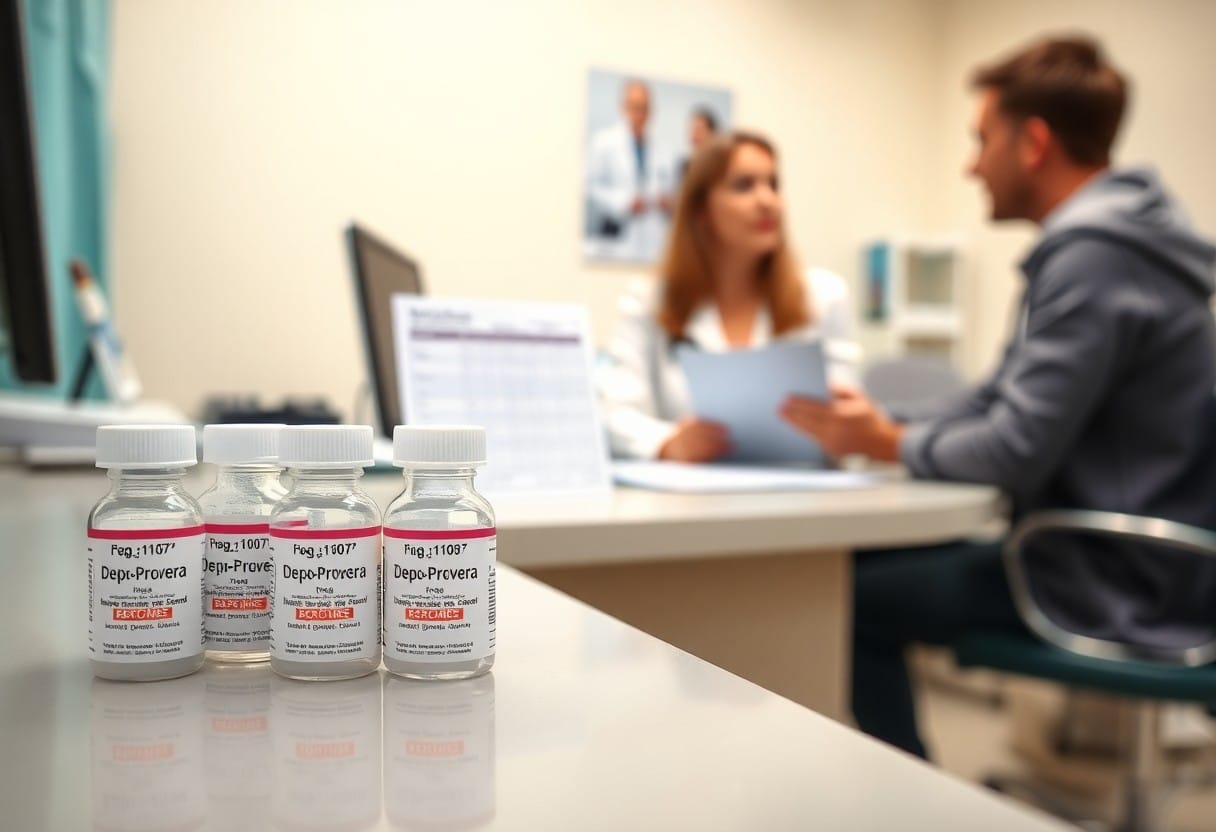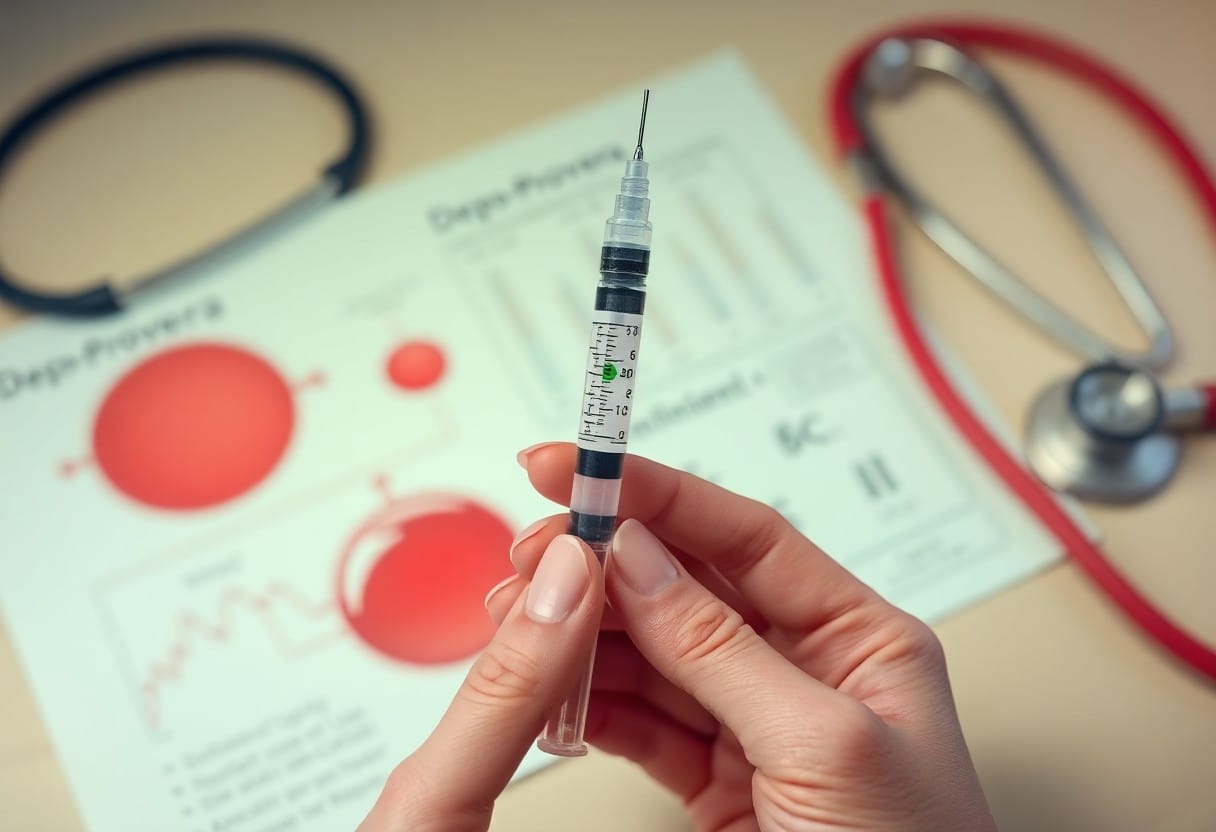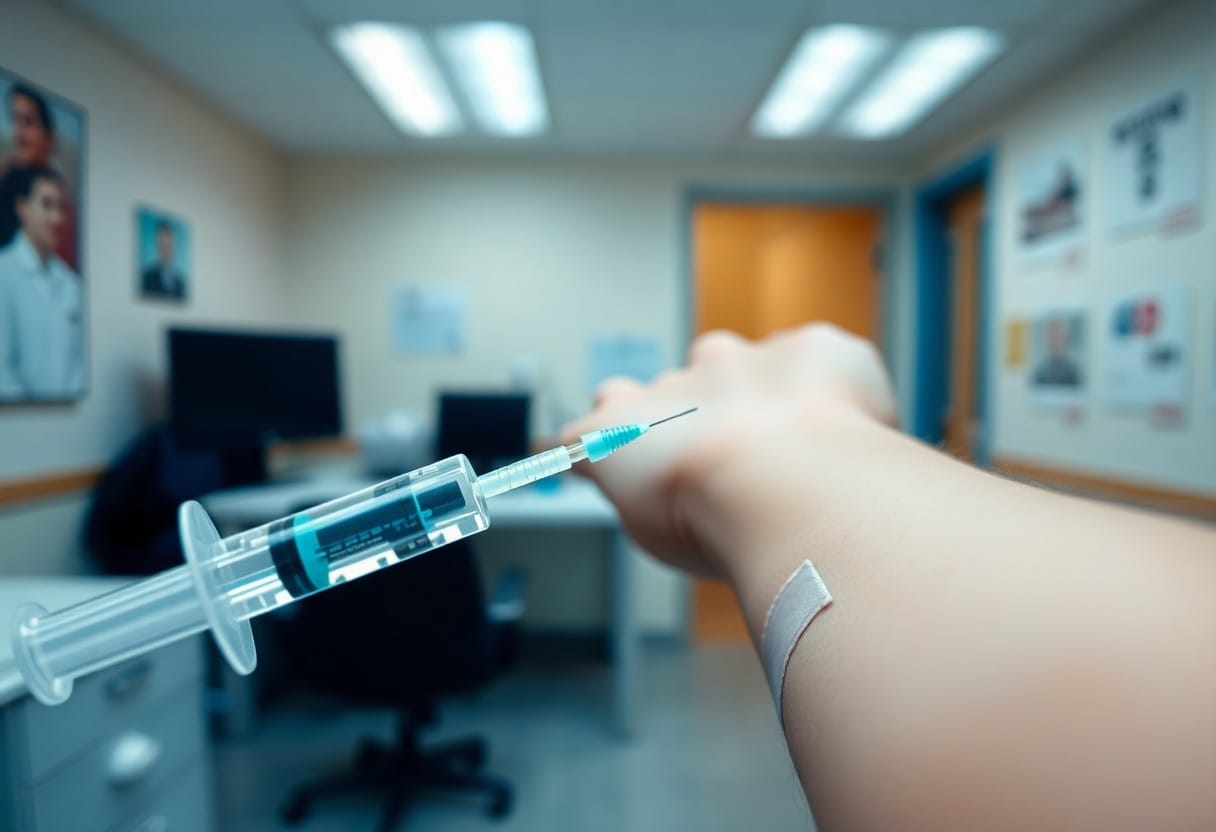Most women using Depo-Provera as a contraceptive method may wonder about its long-term effects on fertility. This blog post will explore into the scientific evidence surrounding the relationship between this hormonal birth control and potential fertility issues. You’ll learn about the timeframe for return to fertility, the impact on reproductive health, and what the latest studies reveal about your reproductive choices. Understanding these details will empower you to make informed decisions about your health and family planning.

Understanding Depo-Provera
While many individuals seek effective and long-term birth control options, understanding the implications of those choices is vital. Depo-Provera is a popular contraceptive method that has gained attention for its convenience and efficacy. However, it is vital to explore its effects, particularly regarding reproductive health and fertility.
What is Depo-Provera?
Between various contraceptive options available today, Depo-Provera stands out as a hormonal injection that contains the synthetic hormone medroxyprogesterone acetate. Administered every three months, this method is favored for its ease and effectiveness in preventing pregnancy.
Mechanism of Action
Between the methods of contraception, Depo-Provera functions primarily by inhibiting ovulation, thereby preventing the release of eggs from the ovaries. It also alters the uterine lining to make it less favorable for implantation, and thickens cervical mucus to hinder sperm movement.
Indeed, the mechanism of action of Depo-Provera is not only effective but multifaceted. The injection primarily inhibits ovulation, which means that your body does not release an egg each month, significantly reducing the chances of pregnancy. Additionally, by thickening the cervical mucus, it acts as a barrier that makes it difficult for sperm to swim through the reproductive tract. Furthermore, by altering the endometrial lining, it creates an environment that is less conducive to a fertilized egg implanting, further enhancing its contraceptive efficacy. Understanding these mechanics is vital for you to make informed decisions about your reproductive health.
Effects on Fertility
The effects of Depo-Provera on fertility can vary from person to person, and it is important to understand how this contraceptive may impact your ability to conceive. While many users will experience a return to fertility after discontinuation, some may find that it takes longer than expected for ovulation and menstrual cycles to normalize. Knowing these potential effects can help you make informed decisions about your reproductive health.
Short-Term Impact on Fertility
Any use of Depo-Provera can lead to a temporary delay in the return of normal ovulation and menstrual cycles after you stop using it. While you may start ovulating as soon as 3 months after your last injection, in some cases, it may take longer, even up to a year. Understanding this timeframe can help you plan your family planning efforts effectively.
Long-Term Fertility Concerns
Behind the short-term delays, there are also concerns about potential long-term impacts on your fertility. Some studies suggest that while most women regain their fertility after stopping Depo-Provera, there may be a small subset who experience prolonged difficulty in conceiving. This has raised questions regarding the permanent effects that prolonged use may have on ovarian function or overall reproductive health.
This uncertainty can be unsettling. While the majority of women will return to their baseline fertility once the injections are stopped, it’s vital to be aware that factors such as age, duration of use, and individual health conditions can influence your personal experience. Discussing your specific situation with your healthcare provider will provide insight tailored to your health, helping you assess any long-term implications of using Depo-Provera on your fertility journey.
Scientific Studies on Depo-Provera and Infertility
Any discussion around Depo-Provera and its potential connection to infertility must be grounded in scientific evidence. Numerous studies have explored the long-term effects of this contraceptive method on menstrual cycles and fertility outcomes. While some findings suggest temporary delays in return to fertility after discontinuation, others indicate that overall, most users regain their fertility within a year. Understanding these varied results can help you make informed decisions regarding your reproductive health.
Overview of Research Findings
Overview of research findings reveals a mix of outcomes concerning Depo-Provera’s impact on fertility. Many studies show that, while Depo-Provera may alter your menstrual cycle and postpone ovulation, it does not appear to cause permanent infertility. Research indicates that a majority of women conceive within 12 to 18 months after stopping the injection, suggesting a reversible effect on fertility rather than permanent damage.
Interpretation of Results
Depo-Provera analysis suggests a reversible effect on fertility, rather than lasting infertility. Your menstrual cycles may be disrupted during the use of this contraceptive, but studies indicate that the majority of women do not experience enduring challenges when trying to conceive after discontinuation. It’s important to consult with your healthcare provider about any concerns you may have regarding your fertility, especially if you are considering starting or stopping Depo-Provera. Understanding your unique situation and any potential risks can help you make informed choices about your reproductive health.
Factors Influencing Fertility Post-Depo-Provera
Despite the common belief that Depo-Provera has a long-lasting effect on fertility, several factors can impact your reproductive health after discontinuing the contraceptive. These include:
- Age at discontinuation
- Duration of use
- Overall health and lifestyle
- The presence of underlying medical conditions
Perceiving these factors can help you better understand your path to maximizing your fertility after stopping Depo-Provera.
Individual Variability
Behind each person’s response to Depo-Provera lies a unique biological makeup that influences how quickly you may regain your fertility. Hormonal fluctuations, individual health issues, and genetic predispositions can all play a role in determining the timeline of your return to normal reproductive function.
Duration of Use
Across studies, it has been observed that the duration of use of Depo-Provera significantly affects the time it takes for your body to regain fertility. Generally, the longer you have used the shot, the more likely you are to experience a delayed return to ovulation.
With each additional year of using Depo-Provera, your body may take an extended period to rebalance and restore normal hormonal levels. Those who use it for several years might encounter a longer timeframe for their menstrual cycle to normalize and ovulation to commence. It’s important to understand that while some women regain their fertility within a few months, others might take up to a year or more. If you’ve been a long-term user, you should consult your healthcare provider to discuss your specific situation and what you can expect moving forward.
Expert Opinions and Recommendations
Many healthcare professionals emphasize the importance of understanding the potential impacts of Depo-Provera on your fertility. Gynecologists often recommend discussing any concerns with your healthcare provider to tailor contraceptive options that suit your life plans and reproductive health goals.
Insights from Gynecologists
From the perspective of gynecologists, they stress that while Depo-Provera can delay the return of fertility for some women, most regain their ability to conceive within a year or two after discontinuation. They advise monitoring your menstrual cycle changes post-injection to better understand your body’s response.
Patient Perspectives
About many women who have used Depo-Provera, their experiences can range from positive to concerning. Some report a seamless return to fertility, while others express anxiety about prolonged delays. Communication with your healthcare provider is imperative to address any fears or uncertainties during your family planning journey.
With various experiences impacting women’s perceptions of Depo-Provera, some highlight the significant weight fluctuations or irregular menstrual cycles associated with the injection. These effects can lead to anxiety about delayed fertility. Others appreciate its convenience and efficacy. Your personal experience will shape your feelings about this contraceptive method, so it’s vital to openly discuss any concerns and track your body’s responses with your healthcare provider.
Alternatives to Depo-Provera
Not everyone may find Depo-Provera suits their contraceptive needs effectively. With a variety of options available, it’s important to explore alternatives that align with your lifestyle and health goals.
Other Contraceptive Options
Around the world, many contraceptive methods exist beyond Depo-Provera, including oral contraceptive pills, IUDs (intrauterine devices), implants, and barrier methods like condoms. Each option offers unique benefits and drawbacks, enabling you to choose what works best for your body and preferences.
Considerations for Choice
About choosing the right contraceptive method, it’s important to evaluate several factors, including your health history, lifestyle, and future family planning desires. You should consider the effectiveness, potential side effects, and ease of use when exploring your options.
This decision can significantly impact your health and family planning goals. Consulting with your healthcare provider is vital, as they can guide you through your options, assess your unique circumstances, and help you understand potential side effects associated with each method. Always weigh the benefits and risks involved in each choice, as this knowledge equips you to make an informed decision about your reproductive health.
To wrap up
Summing up, understanding the connection between Depo-Provera and infertility is vital for anyone considering this contraceptive method. Current scientific evidence suggests that while Depo-Provera may temporarily affect your fertility after discontinuation, most women can expect a return to normal fertility levels within a year. It’s important to consult with your healthcare provider to discuss your individual circumstances and potential long-term effects on your reproductive health. Being informed will empower you to make the best decision for your family planning needs.

















